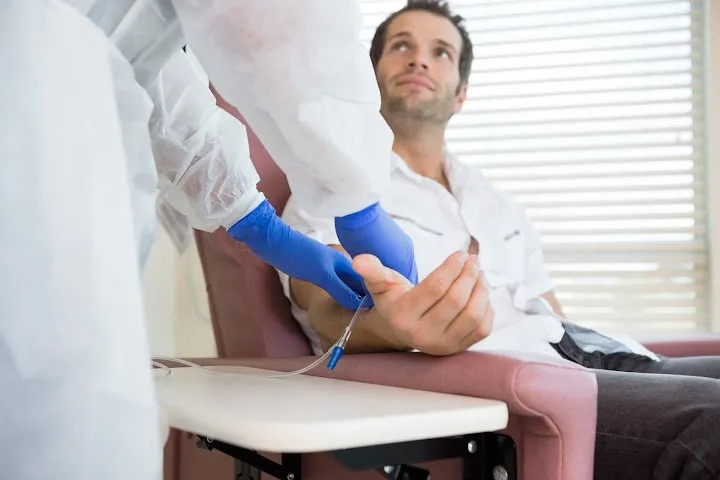Excellence in Rheumatology Care since 1977. Accepting New Patients
Apr 17, 2020
If you are heavily involved in an activity or sport, then you could suffer injuries that will result in early onset arthritis later on. Certain types of injuries put you at higher risk for worn joints and increase your chance of complete joint replacement as you get older.
Therefore, if you are highly active, then you must take steps to protect yourself from joint injury. Here is more information about which types of injuries may lead to arthritis and ways to protect and prepare yourself.
Typical Injuries That Contribute to Arthritis
Many people experience arthritis as a part of the aging process. But not everyone has trauma-associated arthritis. Here are some of the more common types of injuries that may result in early arthritis problems.
Broken Bones
Most broken bones won’t automatically lead to future arthritis. However, if the bone was broken at or near the joint, then you have a higher chance of long-term joint problems.
Twisted Joints
If you suffered from a twisted knee or ankle, then that could affect your cartilage in the future. Jumps and bad landings often put extra stress on your leg joints even if you don’t suffer an injury at that time.
Torn Ligaments
Some activities put a great deal of stress on the ligaments that surround your joints. These ligaments may stretch in strange ways. When they stretch out too much, then they don’t support your joints properly. This could contribute to unusual joint wear.
Direct Injury
If your joint gets hit by an object or in an accident, then you could suffer from arthritis in that joint in the near future.
Repetitive Work
Strenuous repetitive movements put unusual stress on your joints. This often leads to early onset osteoarthritis. This is especially true if your repetitive movement also includes lifting heavy objects.
Ways Arthritis Shows Up After Injury
Even if all of your injuries heal up or seem minor, you could still have early onset arthritis even years later. This is true regardless of if you support and immobilize your joints after injury with a splint or cast. The damage has already been done.
Cartilage and bones could have long-term damage that is slow to heal or won’t heal at all. A piece of cartilage could break off from your joint without your knowledge even if the injury is minor.
Most forms of arthritis show up later in life, but trauma-related arthritis often happens earlier than normal. Another distinction of trauma-related arthritis is that it tends to only affect the joint that had a prior injury. Most other types of arthritis tend to attack multiple joints.
Techniques to Prevent Trauma to Joints
Complete prevention of any injury to your joints for your entire life is impossible. But you can still guard against injury-related arthritis. One of the biggest ways to protect yourself is to keep a healthy weight. Also, practice exercises that strengthen the muscles and ligaments around your joint. When you play your sport, wear supportive gear to protect your joints and reduce unusual movement.
Treatments for Trauma-Related Injuries
The doctor will x-ray your joint to determine the extent of your arthritis. If caught early, you may be prescribed management techniques and even physical therapy to reduce further damage. The bad news is that once the joint is damaged, and arthritis begins to form, you will not heal back to the point when the joint was not damaged. If physical therapy and other techniques don’t prevent the joint from further wear, then replacement may be necessary.
If you have trauma-related arthritis or if your arthritis is caused by other issues, then seek treatment by a medical professional. With proper treatment, your mobility can be preserved or so that you can stay active. Sarasota Arthritis Center can diagnose and treat your arthritis and joint-related problems. Call us for an appointment and see how we can help.

4 Things Menopausal Women Should Know About Osteoporosis
Menopause brings about many changes in a woman's body. One such change women experience is a decrease in the production of estrogen.

Infusion Therapy for Arthritis: 3 Key Points
Arthritis can take many forms, from the targeted joint degeneration commonly seen in osteoarthritis to inflammatory conditions such as rheumatoid arthritis, reactive arthritis, gout, and psoriatic arthritis.

Osteoporosis and Arthritis: Frequently Asked Questions
Over 53 million Americans suffer from osteoporosis, while approximately 52 million wrestle with some form of arthritis.



We are able to see patients by appointment only. If you need to cancel an appointment, please contact our office at least 24 hours in advance. To expedite the check-in process prior to your appointment, please complete the pre-registration paperwork that will be emailed and texted to you through Phreesia. Please bring your insurance cards, method of payment, and identification with you to every appointment.